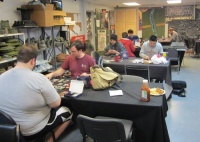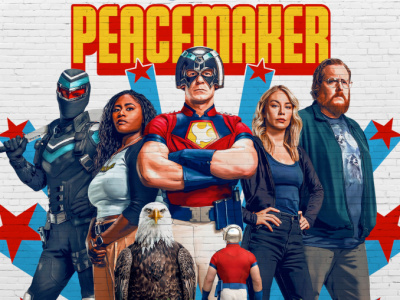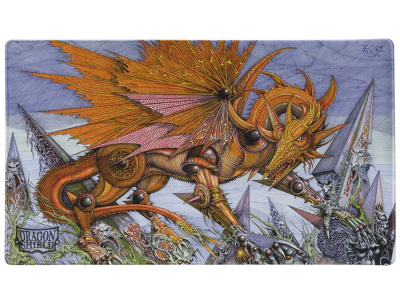 Rolling for Initiative is a weekly column by Scott Thorne, PhD, owner of Castle Perilous Games & Books in Carbondale, Illinois and instructor in marketing at Southeast Missouri State University. This week, Thorne talks about the unique way game stores sell games.
Rolling for Initiative is a weekly column by Scott Thorne, PhD, owner of Castle Perilous Games & Books in Carbondale, Illinois and instructor in marketing at Southeast Missouri State University. This week, Thorne talks about the unique way game stores sell games.Midway through release weekend for Magic: The Gathering--Khans of Tarkir, so naturally I got to musing about how the typical hobby game store has changed over the years and just how uniquely the hobby game store model has developed compared to other store categories with which it is typically lumped, such as comic book and pop culture stores. Despite the fact that we operate using the same basic model of distribution as do Macy's, Target, Dollar General, Hibbit's, even Toys R Us and Olive Garden, the hobby game store, with the encouragement of manufacturers, has developed a very unique business plan closely tying sales to events.
In the traditional or full model of distribution, which even mighty Amazon uses in a modified format, the manufacturer makes the product, sells it to the retailer, who then sells it to the consumer, who then takes it home and uses it. For many products, the distributor also fits into the channel, positioned between the manufacturer and retailer and facilitating the movement of goods between the two.
The difference between the hobby game store and almost every other type of retailer out there is that hobby game stores sell the products and then are expected to facilitate their use. Take Macy's. Macy's sells the customer clothes, shoes, curtains, bedding, etc. The customer buys them and takes them home, then wears them, puts them on the bed, hangs them on the windows and so forth.
Contrast that with the typical hobby game store. Not only do we sell the customer a product but we provide play space for the product and organize events in which customers can participate. Most stores run events every day, many of which have prizes and organizational software provided by the manufacturer. Structured play has developed into such an important facet of the industry that it has a name, Organized Play or OP, and most game companies have some form of OP program in place, with more companies looking to start up their own OP programs every week or so it seems. I just received an email from Japanime Games, asking us if we had any interest in starting OP for TantoCuore and/or Krosmaster: Arena. Currently, I can think of Organized Play programs from Wizards of the Coast, AEG, Privateer Press, Alderac, Bushiroad, Konami, Arcane Wonders, Fantasy Flight Games, StoneBridge, Paizo Publishing and probably others that have slipped my mind.
The thing is, no other retail category (with the possible exception of the traditional hobby, i.e. RC, model railroads, etc.) has developed a model in which they sell a product to the customer, then provide the customer with places and times in which to use it. We sell customers Magic cards, then are expected to run Magic tournaments. We sell customers Warhammer 40,000 figures, then are expected to have terrain and table space available. We sell people King of Tokyo, and are expected to host King of Tokyo championships. A common question from manufacturers when stores apply for OP status is how many players the store can seat. Many stores I have seen run their merchandise displays along the walls with table space in the center, focusing on play space and relegating the merchandise to secondary status.
We do this because, over time, we, and I mean both stores and manufacturers, have found that this model promotes more sales. WOTC often refers to studies the company has done showing that OP boosts sales. It's a no-brainer for most stores to run events but it is also a fairly unique model we have developed.
The opinions expressed in this column are solely those of the writer, and do not necessarily reflect the views of the editorial staff of ICv2.com.







